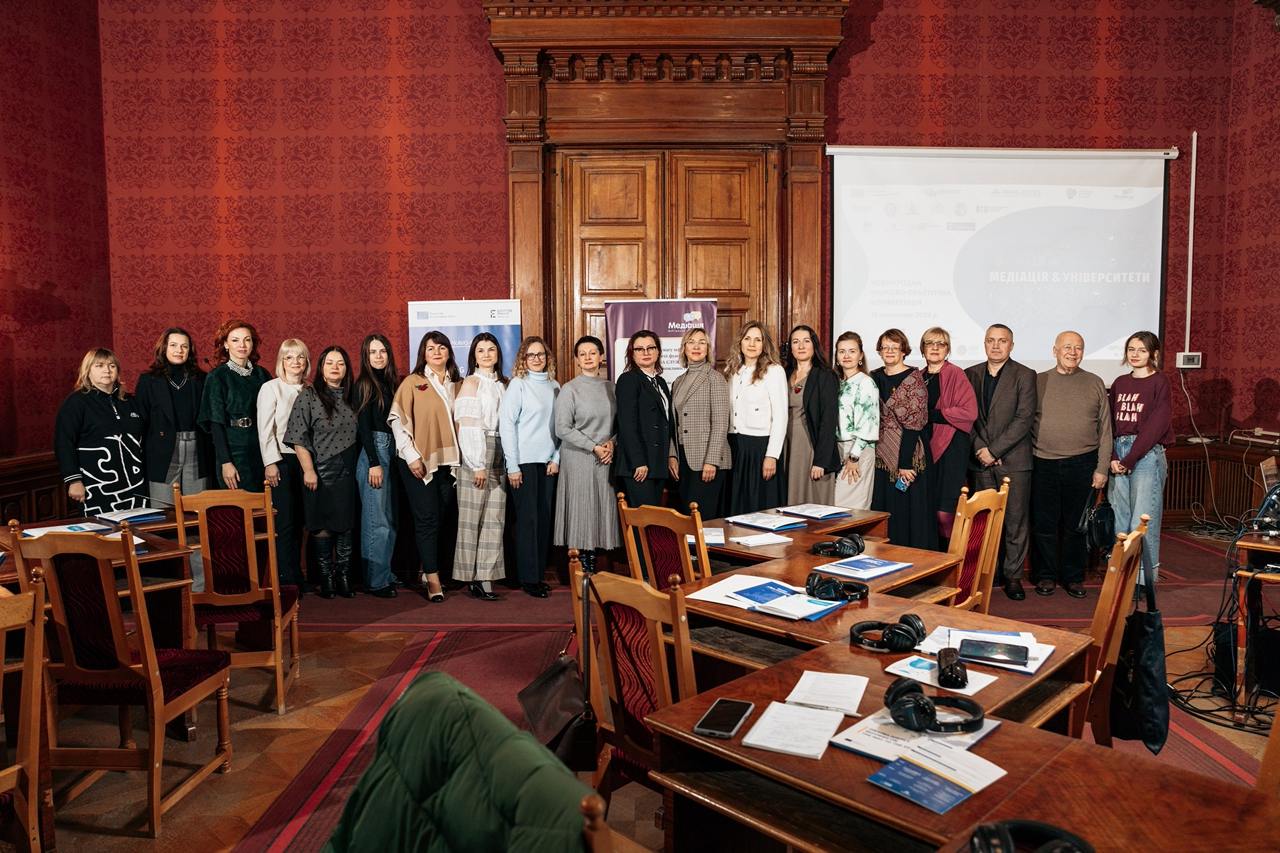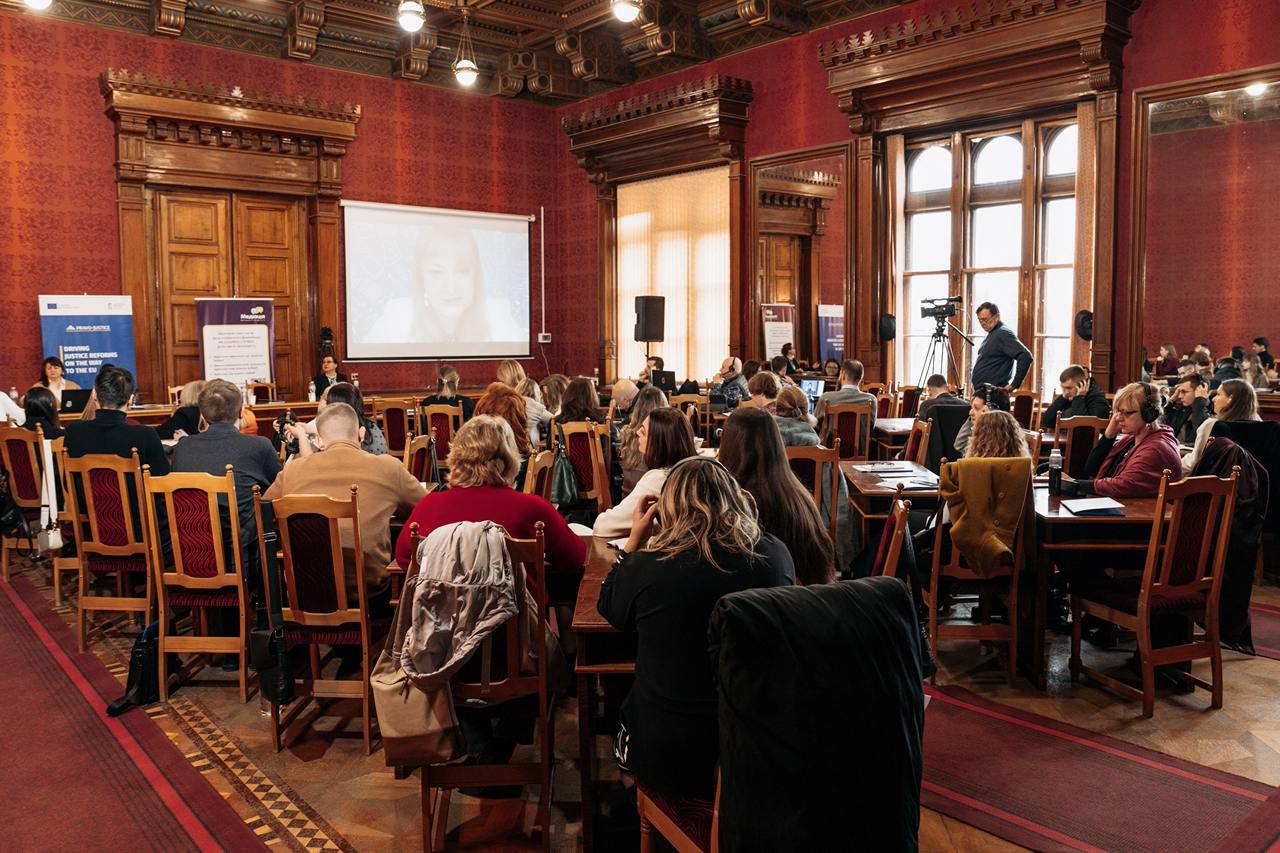EU Project Pravo-Justice Supported the International Scientific and Practical Conference "Mediation & Universities 1.0"

On November 15 at Yuriy Fedkovych Chernivtsi National University, the International Scientific and Practical Conference "Mediation & Universities 1.0" was held with the support of EU Project Pravo-Justice, the Ukrainian Academy of Mediation and other partners, within the framework of EU Project CONSENT.
The conference aimed at exploring various aspects of mediation in universities, in particular as part of training curricula, academic research, and institutional mechanisms, as well as at raising awareness of the role of mediation in higher education and promoting its further development.
According to Oksana Tsymbrivska, Team Leader of EU Project Pravo-Justice, mediation should become a mandatory component of the training of professionals in various fields.
"Mediation is not only a tool for the professional development of lawyers. It is extremely important for each of us, regardless of our profession, because peaceful conflict resolution skills are needed in all spheres of life. Whether it comes to social workers, managers, psychologists, or simply responsible citizens, mediation skills help build understanding, cooperation and respect in society. That is why it is extremely important to develop these competencies at the stage of studying, because they lay the foundations for harmonious coexistence," noted Oksana Tsymbrivska.
She noted that EU Project Pravo-Justice welcomed the initiatives of universities to develop legal clinics and mediation services that help students gain practical experience in conflict resolution "on the spot".
"These are real steps towards forming a culture of understanding and dialogue in society, and we are happy to support such a proactive approach," emphasised the Project Team Leader.
For his part, Virgilius Valancius, Senior International Expert, Support to EU Integration Process in the Justice Sector Component of EU Project Pravo-Justice, said that the use of mediation as an alternative method of dispute resolution was on the agenda in the context of Ukraine-EU bilateral meetings within the framework of screening of Ukrainian legislation for compliance with EU law. It will later be included in the Roadmap in the "Rule of Law" area (negotiation chapters 23 "Judiciary and Fundamental Rights" and 24 "Justice, Freedom and Security").
"The need to develop alternative and pre-trial dispute resolution in Ukraine is, in particular, stated in the draft Strategy for the Development of the Justice System and Constitutional Justice for 2025-2030. Therefore, even greater demand for mediators is expected in the future. In order to be ready, universities should start training future specialists today," said Virgilius Valancius.
At the same time, the expert stated that currently, public authorities are quite reluctant to go for mediation, despite the fact that there are certain legislative grounds in place (in particular, the Law of Ukraine "On Mediation"). According to him, one of the reasons is the lack of training in mediation.
"Mediation should be included in the curricula of law students. After all, lawyers, judges, and civil servants should have at least minimal knowledge and understanding of mediation techniques," emphasised Virgilijus Valancius.

Following the results of then intense discussion, Ruslana Havryliuk, Chair of the Department of Public Law of the Yurii Fedkovych Chernivtsi National University, believes that mediation, which is the resolution of conflicts/disputes by parties, who gave rise to the conflict, themselves, with the help of an independent and impartial mediator, should become one of the elements of the University's culture as a phenomenon.
"This statement may seem like an oxymoron to many, if not most, members of the academic community, just as a decade or two ago mediation in, for instance, criminal cases or administrative disputes seemed like an oxymoron. However now, it has already gained not only recognition, but also well-deserved authority as an effective means of resolving the above-mentioned conflicts (disputes)," she said.